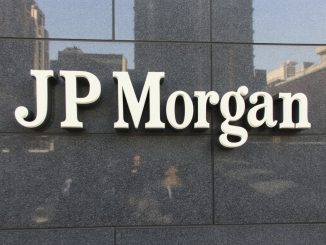- Jamie Dimon, CEO of JPMorgan Chase, warned of a likely U.S. recession, citing a 2000-point Dow Jones Industrial Average decline triggered by Trump’s tariffs and the escalating U.S.-China trade war, which has led to aggressive sell-offs in stocks and bonds.
- He highlighted the self-reinforcing market downturn, noting that losses in 401(k)s and pensions could curb consumer spending, amplifying economic instability as stock futures slump and bond yields spike.

Jamie Dimon, CEO of JPMorgan Chase (JPM), has sounded a stark warning about the U.S. economy, suggesting that a recession is increasingly probable as President Donald Trump’s tariffs destabilize financial markets. Speaking on Fox Business’ “Mornings With Maria,” Dimon pointed to the self-reinforcing nature of market downturns, exemplified by a 2000-point drop in the Dow Jones Industrial Average (^DJI), which he believes erodes consumer confidence and spending power. The intensifying trade war between the U.S. and China lies at the heart of this turmoil, driving aggressive sell-offs in stocks and bonds as investors grapple with heightened uncertainty.
The financial markets are reflecting this unease, with stock futures tumbling and bond yields surging in morning trade, signaling deep concerns over economic stability. Dimon emphasized the psychological impact on everyday Americans, noting that a 2000-point decline in the Dow can make individuals feel the pinch in their 401(k)s and pension funds, prompting them to scale back expenditures. This feedback loop, he argues, amplifies the economic fallout from the tit-for-tat tariff exchange, as markets react not just to policy but to the cascading effects on sentiment and behavior.
Beyond the numbers, the broader context of the U.S.-China trade conflict underscores Dimon’s recessionary outlook. The relentless escalation has rattled global supply chains and corporate earnings, with the 2000-point Dow drop serving as a barometer of investor fear. As bond yields spike, borrowing costs rise, further straining businesses and households already wary of shrinking retirement savings. Dimon’s assessment ties these market movements to a tangible risk: when people perceive losses in their financial security, consumption – the backbone of the U.S. economy – takes a hit, setting the stage for a downturn that could prove difficult to reverse amidst ongoing trade hostilities.
WallStreetPit does not provide investment advice. All rights reserved.
- Bulenox: Get 45% to 91% OFF ... Use Discount Code: UNO
- Risk Our Money Not Yours | Get 50% to 90% OFF ... Use Discount Code: MMBVBKSM
Disclaimer: This page contains affiliate links. If you choose to make a purchase after clicking a link, we may receive a commission at no additional cost to you. Thank you for your support!




Leave a Reply